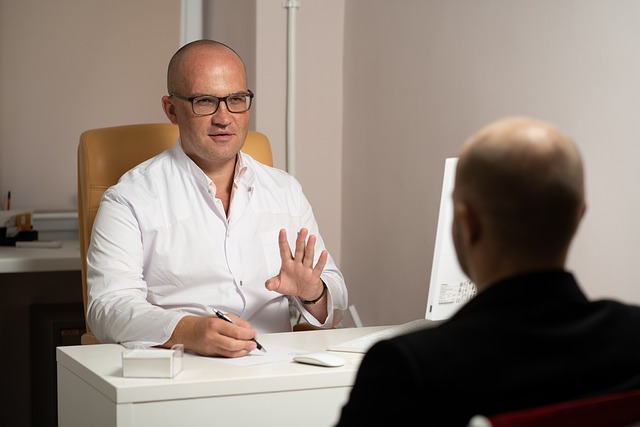Unleashing yourself from the grip of drug addiction is not easy, but it’s more than possible with the right mindset. The road to recovery can be bumpy, full of challenges and setbacks, but once you start taking steps towards a better future, there’s no turning back. In this blog post, we’ll walk you through the essential steps for recovering from drug addiction and help you regain control over your life. From acknowledgment to seeking professional treatment, let’s take your first step toward long-term sobriety.
Acknowledgment and Acceptance
The first and most crucial step toward recovery is acknowledging and accepting the presence of addiction. This self-awareness helps individuals recognize the impact of drugs on their lives and paves the way for seeking help. Acceptance of the addiction creates a foundation for change and allows individuals to embrace a new, healthier perspective on their circumstances.
Seeking Professional Support
 Once acknowledgment and acceptance have taken place, seeking professional support becomes paramount. Drug addiction is a complex condition that often requires the expertise of medical professionals, therapists, and addiction specialists. Professionals from www.resolutionsofpalmbeach.com can offer guidance, personalized treatment plans, and emotional support tailored to the unique needs of each individual. Professionals help individuals navigate withdrawal challenges and build a solid foundation for long-term recovery through therapy sessions, detoxification programs, and medication-assisted treatments.
Once acknowledgment and acceptance have taken place, seeking professional support becomes paramount. Drug addiction is a complex condition that often requires the expertise of medical professionals, therapists, and addiction specialists. Professionals from www.resolutionsofpalmbeach.com can offer guidance, personalized treatment plans, and emotional support tailored to the unique needs of each individual. Professionals help individuals navigate withdrawal challenges and build a solid foundation for long-term recovery through therapy sessions, detoxification programs, and medication-assisted treatments.
Building a Support Network
Recovering from addiction requires a strong support network. Surrounding oneself with individuals who understand the struggles and provide encouragement can make a significant difference. Support groups, such as Alcoholics Anonymous (AA) or Narcotics Anonymous (NA), offer a safe space to share experiences, gain insights from others, and receive ongoing support. Connecting with family, friends, or mentors committed to your recovery journey further enhances your chances of success.

Creating a Structured Routine
Establishing a structured routine is crucial during the recovery process. Creating a schedule that includes healthy habits, such as regular exercise, nutritious meals, and sufficient sleep, helps individuals regain control of their lives and promotes overall well-being. By incorporating activities that bring joy, fulfillment, and a sense of purpose, individuals can fill the void left by addiction and focus their energy on positive endeavors.
Developing Coping Mechanisms
Recovering from drug addiction often involves confronting triggers and facing challenging emotions. Learning healthy coping mechanisms is essential to navigating these difficult situations. Techniques such as mindfulness, deep breathing exercises, meditation, and journaling can help manage stress, reduce cravings, and enhance emotional resilience. Engaging in creative outlets or pursuing hobbies also provides a positive outlet for self-expression and personal growth.
Long-Term Maintenance
 The journey of recovery extends beyond initial treatment. Long-term maintenance is crucial to prevent relapse and sustain a drug-free life. This stage involves ongoing therapy, regular check-ins with medical professionals, and actively participating in support groups. Additionally, making lifestyle changes and avoiding situations or people associated with drug use reinforces the commitment to sobriety. Celebrating milestones, setting achievable goals, and acknowledging personal growth further strengthen one’s resolve to maintain a drug-free life.
The journey of recovery extends beyond initial treatment. Long-term maintenance is crucial to prevent relapse and sustain a drug-free life. This stage involves ongoing therapy, regular check-ins with medical professionals, and actively participating in support groups. Additionally, making lifestyle changes and avoiding situations or people associated with drug use reinforces the commitment to sobriety. Celebrating milestones, setting achievable goals, and acknowledging personal growth further strengthen one’s resolve to maintain a drug-free life.
By acknowledging the addiction, seeking professional help, building a support network, establishing a structured routine, developing healthy coping mechanisms, and committing to long-term maintenance, individuals can reclaim their lives and experience a renewed sense of purpose and fulfillment. Remember, recovery is a personal and unique process, and while it may have its ups and downs, each step brings you closer to a brighter and healthier future.




 Sleep is crucial for brain health. When we sleep, our brains have a chance to rest and repair themselves. Not getting enough sleep can have negative impacts, including memory problems and difficulty concentrating. If you want to keep your brain healthy, ensure you get at least seven to eight hours of sleep every night. But if you think you have a problem getting a good night’s sleep every night, you can try some sleep aids to help you get the rest you need.
Sleep is crucial for brain health. When we sleep, our brains have a chance to rest and repair themselves. Not getting enough sleep can have negative impacts, including memory problems and difficulty concentrating. If you want to keep your brain healthy, ensure you get at least seven to eight hours of sleep every night. But if you think you have a problem getting a good night’s sleep every night, you can try some sleep aids to help you get the rest you need. That’s why you should never neglect the importance of socializing and maintaining good relationships with people around you. According to some studies, social isolation can lead to cognitive decline, so keeping your social life active is essential. You can do this by joining a club or group, volunteering, or spending time with friends and family. If you want to keep your brain healthy, make sure you’re staying social. These are just some of the most common mistakes people make that can have a negative impact on their brain health.
That’s why you should never neglect the importance of socializing and maintaining good relationships with people around you. According to some studies, social isolation can lead to cognitive decline, so keeping your social life active is essential. You can do this by joining a club or group, volunteering, or spending time with friends and family. If you want to keep your brain healthy, make sure you’re staying social. These are just some of the most common mistakes people make that can have a negative impact on their brain health.


